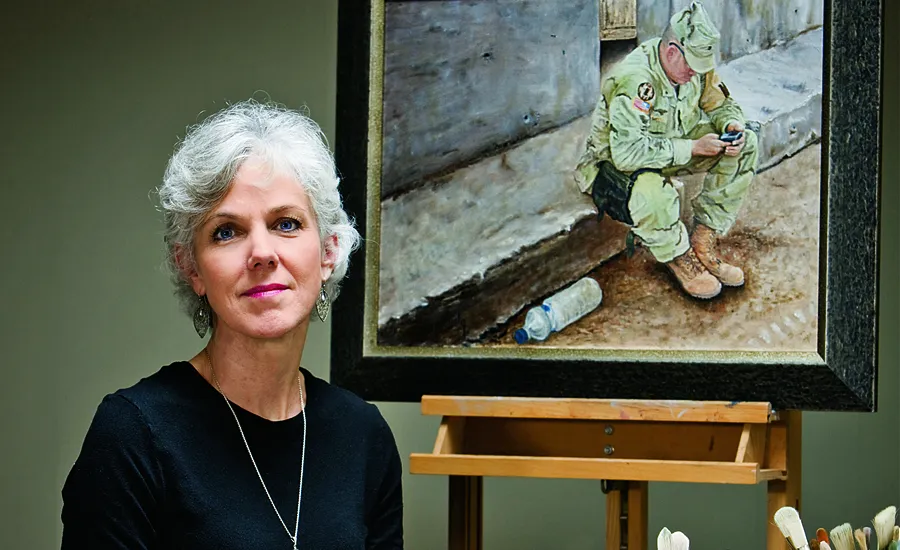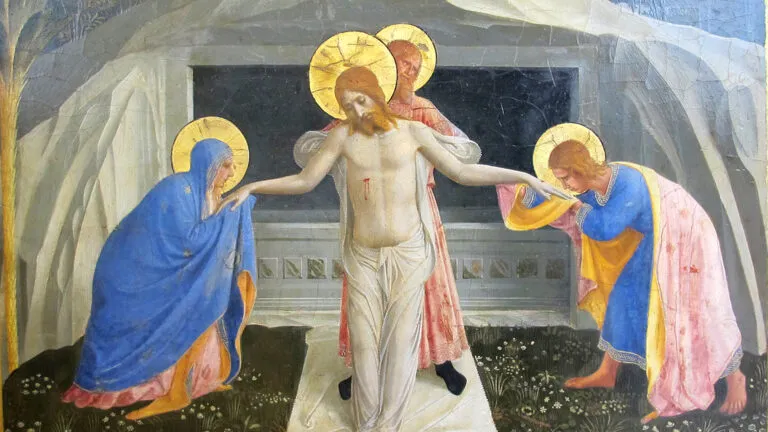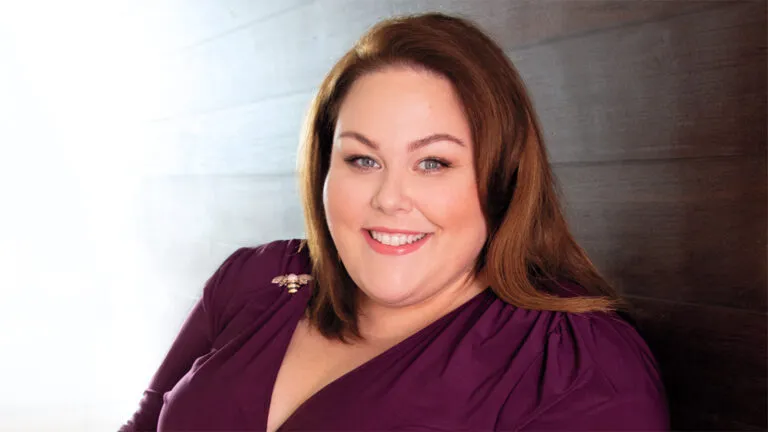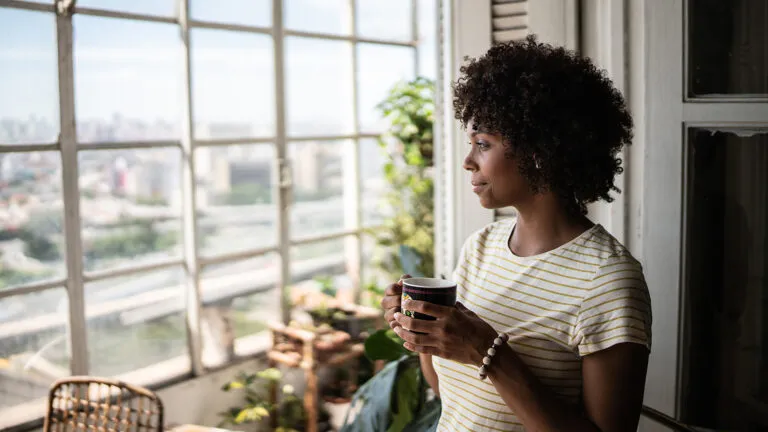I turned the flash drive in my hands, my fingers running over its smooth case. It didn’t seem right that the last months of my son’s life were contained in this tiny bit of plastic and metal and computer circuitry. It felt flimsy, inconsequential, the complete opposite of my Joseph, a natural leader with a big presence—strong, solid, comforting.
Losing him left a void in my life so painful I couldn’t see how anything could ever fill it. I’d lost a part of myself forever. My husband, Carey, had returned to work, and our two younger children had gone back to college. I couldn’t seem to get back to my normal routine. I went to church, but I couldn’t sing in the choir or play my flute in the orchestra without breaking down. I turned away from friends. Some days I didn’t even leave the house, as if being alone with my grief was the only way to hold on to my son.
Joseph was a sergeant in the Army’s 411th Military Police Company, stationed in Baghdad. The last time he called from Iraq, I asked if there was anything special he wanted when he came home on leave. “A big steak,” he’d said. “And I want to see the Gamecocks.” He was a huge University of South Carolina football fan. Carey and I bought tickets to a game. I could hardly contain myself. At night I would gaze at the sky and imagine that Joseph saw the same bright moon thousands of miles away in Baghdad. It made me feel closer to him. Soon, Lord, I’d think, soon he’ll be with me again, and we’ll look at the moon together.
That was before the call, the call every soldier’s mother dreads. One late September day, just a few short weeks before he was due home, Joseph was felled by an insurgent sniper. He died in surgery. He was only 25.
I should have been laughing with him as he hugged me so hard he lifted me off my feet, leaning into him as he yelled himself hoarse cheering for his beloved Gamecocks. Instead, I wept, sorting through the boxes the Army delivered. The men in his unit had packed up his belongings and returned them to me.
Here I was, months after the funeral, rummaging through Joseph’s things again, as if touching what he had touched could somehow bring him back to me. There were the laces from his boots, the desert dust still on them. The T-shirts that carried a hint of his scent. His Game Boy. The phone card he used to call home. The letters he’d saved—letters I’d sent in my care packages, every one sealed with a prayer for his safe return. Now the only prayer I could manage was for God to bring me out of this terrible, endless grief.
Joseph was my oldest, the only child from my first marriage. For a while, it was just the two of us. We were a tight team. Even after I married again and he had a stepfather and a younger brother and sister he loved, Joseph and I had a special bond. He was a big, strong kid. Loved to laugh and make everyone else laugh with him. He had a musical side and took up the cello. That pleased me to no end. I couldn’t wait for the day he joined me in our church orchestra. Only that day never came because Joseph discovered baseball. He put away his cello, and sports, not music, became his thing. In high school, he was the captain of the football and basketball teams. I was proud of him but a little concerned too, wishing he’d devote that same energy to his studies.
He graduated and, for a couple years, bounced around from job to job. Nothing seemed to be the right fit. My worries grew, and so did my prayers. Lord, I asked, let Joseph find his true purpose in life. Guide him.
Even so, I was upset—shocked—when he announced that he’d enlisted in the South Carolina National Guard. I begged him to reconsider. “Please, Joseph…you could get hurt.”
He was resolute. “Mom, this is what I really want to do,” he said.
Joseph thrived in the National Guard. He served with a military police unit and after a year, joined the Army. He did stints in South Korea and Iraq. First Tikrit, then Baghdad, where he was asked to help train Iraqi policemen. He loved his work. I could tell from the excitement and wonder in his voice when he told me about it that he had found what he was meant to do. He called in the afternoons, around three o’clock my time. The caller ID would come up Caller Unknown, but I knew it was him.
“Mom, you should see what I’m seeing,” he said. “The people here are really inspiring. I wish you could meet them.”
He promised to do the next best thing: Take pictures, tons of them. “I’ll put ’em all on a flash drive,” Joseph said. “We’ll have a big slideshow when I come home and I can tell you everything.”
That flash drive had been among the things the Army returned to me. For weeks I’d been staring at it, picking it up and putting it down again. At first I couldn’t bear the thought of looking at all of Joseph’s photos from Baghdad. What would be the point, if he wasn’t there to tell me the stories behind the pictures?
But with each day that passed, I felt like I was losing more of him, as if that connection between us was weakening, fading bit by bit like his scent from his old T-shirts.
I looked at the flash drive now, so light in my hands despite the weight of what it might hold. Maybe it was time. I walked over to the dining table and stuck the drive into the port on my laptop. Joseph had saved hundreds of picture files on it. I clicked on one, my fingers trembling. The screen filled with an image of two soldiers standing guard at night. Click. A street in Baghdad, a mosque in the background. Click. An Iraqi policeman Joseph was training, his face lined, his bearing proud. Click. A bustling marketplace. Click. A G.I. sitting on a curb, calling home on his cell phone. Click. My son, hanging out in the barracks with the other guys in his unit.
Day after day, I went back to my laptop, going through the photos, one by one. Why did you save these pictures, Joseph? What did you want to tell me? The images haunted me. In a way, they became more real to me than my usual world of choir and orchestra rehearsals, lunches with friends. One picture in particular struck me. The two soldiers standing watch at night. They were in silhouette, a helicopter hovering, a full moon shining in the background.
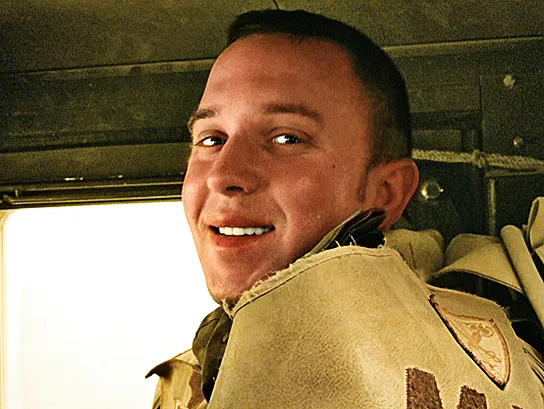
One day my friend Christy called. “Why don’t you come over for coffee this afternoon?” she said. I hesitated. “You need to get out, Suzy,” she insisted.
Carey had been telling me the same thing. I knew they were right. “Okay.”
It was nice to see Christy. She’d put new pictures on her walls since the last time I’d been over. Lovely paintings of flowers. Bright, sunny, vibrant. I leaned close to see the name of the artist. It was Christy. “I didn’t know you could paint!” I said.
Christy laughed. “I didn’t know either, but I started taking this class and I really got into it,” she said. “When I paint, every care I have seems to melt away.” She grabbed my hand. “Come with me next time?”
I’m not sure why, but I did. The feel of the brush in my hand, the smell of the oil paints, the richness of the pigments…something in me eased and calmed as I put those colors on the canvas and filled the expanse of white with meaning. From the canvas through the brush up through my hand and to my heart, I felt a connection. To what, I wasn’t sure.
Once I did a few practice canvases and had the basics down, the instructor asked me to choose a subject for my first original piece. “What do you want to paint?”
That night, after the dinner dishes were done, I set up my easel in the kitchen and took out my paints. I thought I’d paint something bright, like Christy’s flowers. Maybe the bowl of fruit on the counter. I closed my eyes and was startled by another image: Two soldiers silhouetted in the moonlight, a helicopter in the tawny sky behind them.
I went to my laptop and printed out the photo. Then I clipped it to my easel, dipped my brush in the paint and started in. When I got to the moon, I paused, remembering those nights I used to gaze at the sky and think of Joseph seeing the same moon far away in Iraq. I still felt the ache of loss, but there was a peace too, a peace that I knew could only come from God, a God who was taking me by the hand and leading me through my grief. I touched my brush to the canvas again, filling in the last piece of the painting with soft strokes.
I set down the brush and sat back. My eyes went from the painting to the photo my son saved. Joseph was with me. We were looking at the moon together.
Now I have an art studio behind our house. I paint almost every day, the images on Joseph’s flash drive my inspiration. I will never know the stories behind all those pictures, but when I work on a painting I see the world my son saw, and I feel close to him again, in a way only God could have helped me find.
